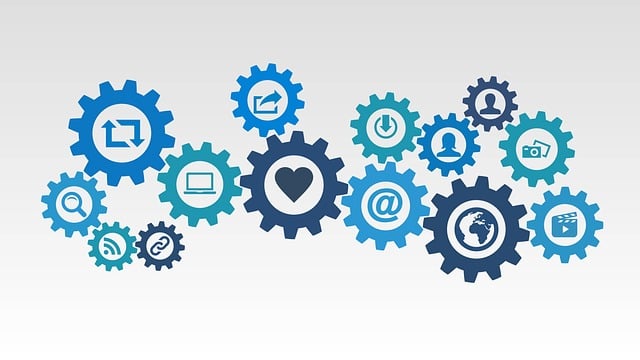In today's digital age, businesses leverage AI-generated food blog content and AI Business Robotic Process Automation (RPA) for unprecedented efficiency. This pairing automates repetitive tasks, freeing employees to focus on strategic initiatives, while AI RPA bots manage processes from data entry to customer service. AI-generated content streamlines workflows, enabling personalized content at scale, enhancing productivity, and driving growth in a competitive market. Additionally, AI-driven technology in food blogging offers sophisticated recipes and reviews by analyzing vast datasets, fostering a dynamic digital gastronomic landscape. However, successful implementation of AI RPA requires addressing data quality issues, ethical considerations, and managing employee concerns regarding job displacement. Future advancements promise more complex task automation, revolutionizing industries like food production.
“Discover how Artificial Intelligence (AI) is transforming business operations through Robotic Process Automation (RPA), enhancing efficiency across industries. From streamlining mundane tasks to revolutionizing content creation, this technology is a game-changer. In this article, we explore ‘Unlocking Efficiency’ with AI RPA and its impact on various sectors. Additionally, we delve into the ‘Impact on Content Creation’, showcasing how AI-generated food blog content is rising in popularity. Finally, we navigate challenges and discuss future prospects, providing insights into the ever-evolving world of AI RPA.”
- Unlocking Efficiency: How AI Business Robotic Process Automation Streamlines Operations
- The Impact on Content Creation: AI-Generated Food Blog Content Revolution
- Navigating Challenges and Future Prospects in AI RPA Implementation
Unlocking Efficiency: How AI Business Robotic Process Automation Streamlines Operations

In today’s digital era, businesses are unlocking unprecedented efficiency by leveraging AI-generated food blog content and AI Business Robotic Process Automation (RPA). This powerful combination revolutionizes traditional operations by automating mundane, repetitive tasks, allowing human employees to focus on more strategic initiatives. AI-driven RPA bots can manage a variety of processes, from data entry and order processing to inventory management and customer service interactions, enhancing overall productivity and accuracy.
By integrating AI-generated content into their workflows, companies further streamline operations. These advanced algorithms can create personalized content at scale, ensuring consistent messaging while saving significant time and resources. This not only improves operational efficiency but also enables businesses to deliver tailored experiences to their customers, fostering stronger connections and driving growth in a competitive market.
The Impact on Content Creation: AI-Generated Food Blog Content Revolution

The rise of AI business robotic process automation is revolutionizing various industries, and the culinary world is no exception. AI-generated food blog content is becoming increasingly sophisticated, offering a new dimension to digital gastronomy. These advanced algorithms can create compelling articles, recipes, and reviews with minimal human intervention. By analyzing vast datasets of cooking trends, ingredient combinations, and consumer preferences, AI models generate unique and engaging content at scale. This not only enhances the efficiency of content creation but also opens up creative possibilities for food bloggers and industry professionals.
With AI-driven tools, content producers can explore innovative recipes, uncover hidden culinary insights, and provide personalized dietary suggestions tailored to individual tastes. As a result, food blog readers benefit from a diverse range of high-quality, diverse, and accessible content. The impact is profound; it transforms the way we interact with culinary media, fostering a dynamic and ever-evolving digital gastronomic landscape.
Navigating Challenges and Future Prospects in AI RPA Implementation

Implementing AI-driven Robotic Process Automation (RPA) in businesses offers immense potential for increased efficiency and cost reduction, especially in repetitive tasks. However, navigating the challenges that come with this technology is crucial to ensure its successful integration. One of the primary hurdles is data quality; inaccurate or incomplete data can lead to flawed outcomes, so investing in robust data management practices is essential. Additionally, ensuring ethical considerations and addressing potential job displacement concerns among employees are vital aspects to manage during implementation.
Looking ahead, the future of AI RPA appears promising, with advancements in natural language processing and machine learning enabling more complex task automation. As AI continues to evolve, its integration with other technologies like cloud computing and Internet of Things (IoT) devices can create innovative solutions for industries such as food production, where AI-generated content can enhance customer experiences while streamlining backend processes.
AI Business Robotic Process Automation (RPA) is transforming industries, from streamlining operations to revolutionizing content creation, particularly with AI-generated food blog content. While challenges exist, including data security and employee resistance, the future prospects of AI RPA implementation are promising. As technology advances, we can expect even more innovative uses, ensuring businesses stay competitive in today’s digital era.
